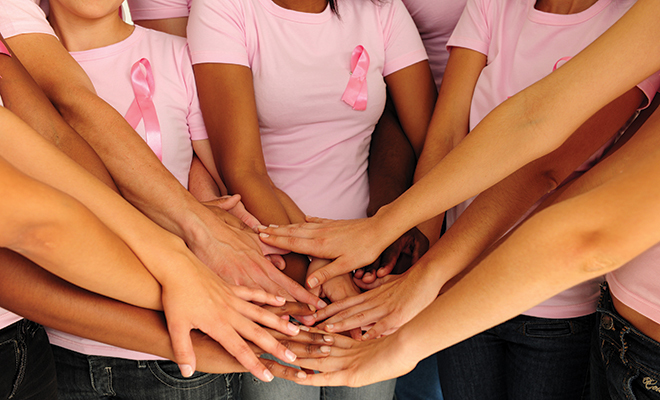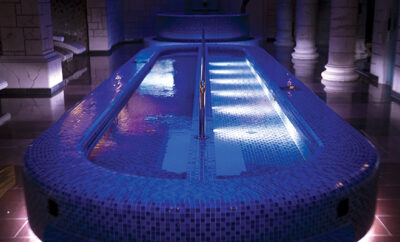
Retreats help cancer survivors thrive
Imagine that you have received the diagnosis of The Big C, gone through the treatment plan, and you’re as depressed as you could possibly be. Someone tells you about a cancer retreat, and you wonder if they have gone completely nuts.
AActually, they haven’t. The idea behind retreats for women cancer survivors is to alleviate the stresses women have that come from medical treatments, home and family life and work. The retreats are generally held over a weekend and they’re often free of charge.
Many cancer survivors participate in a range of limited activities that are safe and non-demanding. The activities encourage participants to learn new skills for coping with and surviving cancer. They also increase the survivor’s support group with others undergoing the same difficulties. The retreats are frequently in serene, natural settings so that the participants can relax and have fun outdoors, inhaling fresh air and enjoying the beauty of nature.
Participants are expected to function independently and have a medical clearance from their doctor. Sleeping arrangements may be dormitory style and meals are served buffet style, yet participants need not worry about rustic facilities unable to handle emergencies. The retreats have a doctor on staff and arrangements for emergencies. Cancer treatments can be administered if necessary.
A primary function of the retreats is to provide psychological support while encouraging the cancer survivor to participate in workshops and activities. Living with breast cancer or any other cancer is difficult. By attending a retreat with others who are suffering from the same condition, women feel better able to cope with their situations. In one study, 91 percent of the participants claimed they learned something new about living with breast cancer.
One such retreat is Healing Odyssey Retreat in Lake Forest, California. The program was started by Nancy Raymon, RN, MN, AOCN, an oncology nurse specialist, and Donna Farris, LCSW, a clinical social worker, in 1993. The retreat is three days long and encompasses support, survival and coping strategies for cancer survivors. An integral part of their retreat is called The Ropes Course, with more than 35 different activities designed to build trust, teach coping with fear, and provide experiential learning.
At the Casting for Recovery retreat in Manchester, Vermont, women learn fly fishing in a catch-and-release program. The smooth, rhythmic motion of fly fishing helps participants regain the flexibility and range of motion they need to function in their daily lives in addition to the joy of fishing.
The approach at Camp Mak-a-Dream is slightly different. This retreat has programs designed for women only and others designed for families affected by cancer. There are two women-only retreats, one for ovarian cancer survivors and another one for women with any type of cancer. Again, the counselors encourage cancer survivors to participate in educational workshops as well as recreational and relaxation activities in the outdoors of Missoula, Montana.
Boarding for Breast Cancer, B4BC, is a breast cancer organization for young women. While it’s primarily an educational organization, they do have retreats for breast cancer survivors. A major function of the retreats in various locations is to put joy into the lives of cancer survivors who have undergone, or are currently undergoing, a major upheaval in their lives. A Saturday night party and dance, excursions off site and art are just some of the fun activities these retreats encourage. By addressing the issues of survivorship, including physical and emotional adaptation to cancer, the quality of life of the survivor is enhanced as are their physical, psychological and spiritual well-being.
Healing Odyssey follows up with its graduates. Six weeks after the retreat, the graduates are invited back for a reunion. Then, quarterly meetings are held to allow the survivors to reconnect with other graduates. Approximately 1,000 women have participated in Healing Odyssey since its inception in 1994 and praise it highly.
According to Michelle, 51, a cancer survivor of nearly two years, the reunion is a fantastic way to keep in touch with women she met at the retreat. Healing Odyssey was her lifeline when she finished her treatments and was at loose ends wondering what was next. Michelle was a high-powered player in the film industry, all set to make a major move up in the industry when she was diagnosed with a rare form of breast cancer. Her life came crashing down around her and left her feeling like an alien. After her treatment was completed, she wondered, “What I am going to do?” She now works at home instead of an office.
At Healing Odyssey, Michelle was able to face her fear of cancer and its prognosis and to absorb the empowerment and coping tools that are an integral part of the retreat. Empowerment taught her how to get her life back on track. Coping tools taught her how to deal with the fear and depression that often accompany breast cancer.
Michelle learned her lessons well. She is a survivor. HLM
Sources: b4bc.org, bcconnections.org, campdream.org, castingforrecovery.org and healingodyssey.net.







